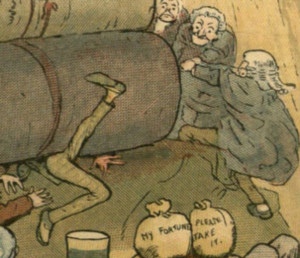The Supreme Court has agreed to review Frank v. Gaos, a case in which Ted Frank is objecting to a Google class action settlement. [Barbara Leonard, Courthouse News; Kieren McCarthy, The Register (U.K.)] From the latter piece:
Of the $8.5m that Google has agreed to pay out, not a single cent will go to the actual users whose privacy was violated. It will instead go to the lawyers that brought the case on behalf of those users ($2.125m, no less) and a group of seven organizations that the lawyers, along with Google executives, decided should become “cy pres” recipients.
Those recipients have been controversial from the moment they were named: three of them are law schools, and just so happen to be the same law schools that the lead lawyers went to; and the remaining four are organizations that Google has repeatedly given money to, in large part because they share the same values and goals as Google itself….
His position is quite clear: the use of cy pres – pronounced, fittingly, “sigh, pray” – should be a last resort, and if used, there should be no conflict of interests or even the appearance of a conflict, for those involved in drawing up the list for who gets the money.
Dubious use of cy pres has been a regular topic here at Overlawyered, even before the years when Ted blogged here:

